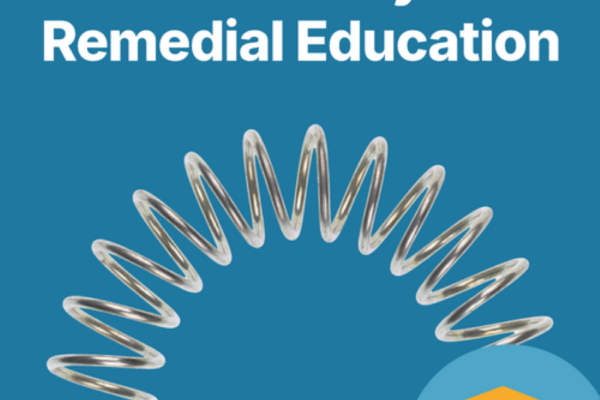In this episode of the FutureU podcast, hosts Michael Horn and Jeff Selingo speak with Anne Kim, FutureEd senior fellow and author of the report, Incomplete: The Unfinished Revolution in College Remedial Education, to explore the history of remedial education in the United States and what is needed to advance reform efforts.
Over a decade ago, research highlighted the inefficacy of traditional remedial education, spurring significant investments in redesigning how students who need extra support are prepared for college. Despite these efforts, progress has stalled. “With any reform movement, momentum is hard to sustain. And what was once shiny and new becomes yesterday’s news,” Kim explains.
As a result, remedial education remains a challenge on college campuses. Kim highlights the ongoing issues: “The majority of the kids never made it to a college-level class, while at the same time they were blowing through financial aid, racking up debt, and billions of dollars were being spent on remedial education that wasn’t getting them anywhere.”
Kim also outlines models that are successfully addressing these challenges today and offers solutions for moving forward. “You’ve got to fix the placement problems, but you’ve also got to shorten the track and make it more engaging while supporting students so they can pass Math 101 or English 101,” she says.
